The 2021 Sweat Science Holiday Book List
- Oops!Something went wrong.Please try again later.
All I want for Christmas is a big snowstorm accompanied by a massive multi-day Internet outage that makes curling up on the sofa with a book the only reasonable option. Here are some titles you might want to stock up on, in case you're lucky enough to receive that meteorological gift. It's a mixed list, mostly but not always related to the Sweat Science themes of science, endurance, and health, and mostly but not always published this year. (I'm leaving out some great 2021 titles like Herman Pontzer's Burn and Michael Easter's The Comfort Crisis that I plugged preemptively in last year's list.)
'The Joy of Sweat,' by Sarah Everts
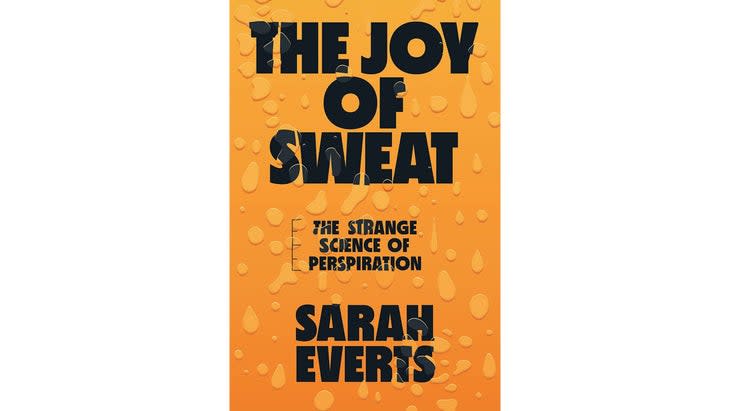
I write a column called Sweat Science, so of course I was a sucker for this one. From the opening anecdote (about a woman in South Africa whose red-tinted sweat prompted a case report in Dermatology once it was traced to her love of spicy tomato-flavored corn chips) to the smell-dating event Everts attends in Moscow (ummm... you'll just have to read it to find out), it's packed with fun and unexpected lines of inquiry, all underpinned by carefully reported science. For more details, check out Tom Vanderbilt's review and podcast interview with Everts.
'The Bushman's Lair,' by Paul McKendrick
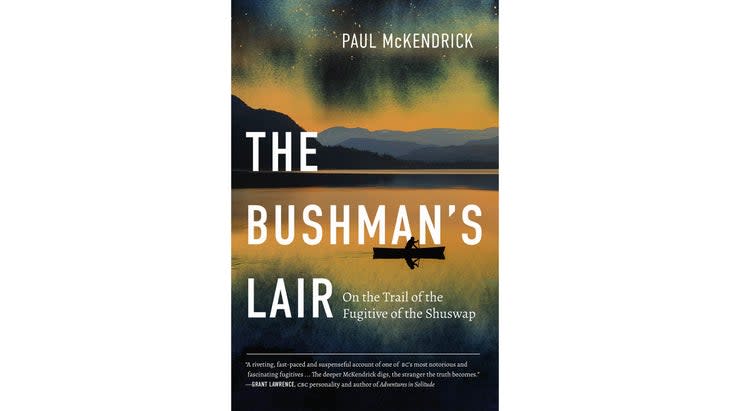
This is the tale of a guy named John Bjornstrom, better known as the Bushman of the Shuswap, who lived as a fugitive in a remote cave in the British Columbia wilderness for two years until being captured by police two decades ago. Part of me, I'll confess, thought the whole escapade sounded pretty cool--especially the 900-square-foot cave he rigged up with wood framing, battery- and propane-powered appliances, and a hot tub. Once you realize that all his stuff was stolen from others, your sympathy dissipates. But Bjornstrom's tale is still a wild and perplexing one, from his early experiences volunteering for a U.S. military operation studying psychics to the death threats following his work as a private investigator on the calamitous Bre-X mining scandal, which is what initially sent him into hiding. You don't end up with all the answers at the end of this book, but you're glad you went along for the ride.
'Racing the Clock,' by Bernd Heinrich
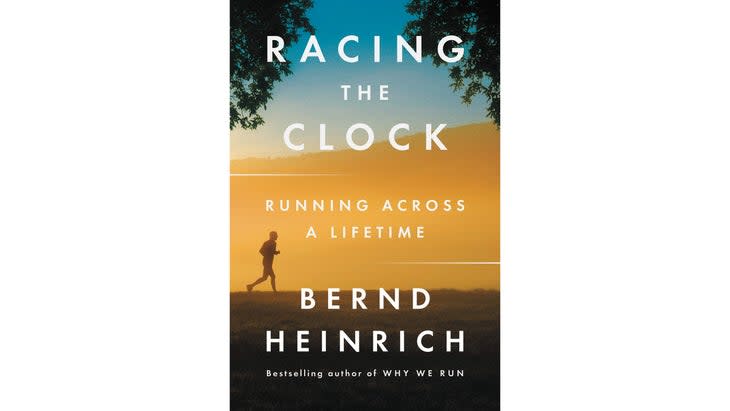
Heinrich's 2001 book Why We Run has cult status among a certain type of runner. It wove the story of his love of running, his world masters record over 100K in 1981, and a lifetime of observations as a biologist about how and why various species move and what that tells us about ourselves. His new book was supposed to follow a similar format, framed by his attempt to set new age-group records when he turned 80 last year--but that was derailed by injury (suffered while chasing a deer through the woods). Instead, the book probes his changing relationship with running over his lifespan, interlaced once again with plenty of comparative biology. If you're going to read one Heinrich book, I'd suggest Why We Run; but if, after that, you're up for more, try this one.
'The Practice of Groundedness,' by Brad Stulberg
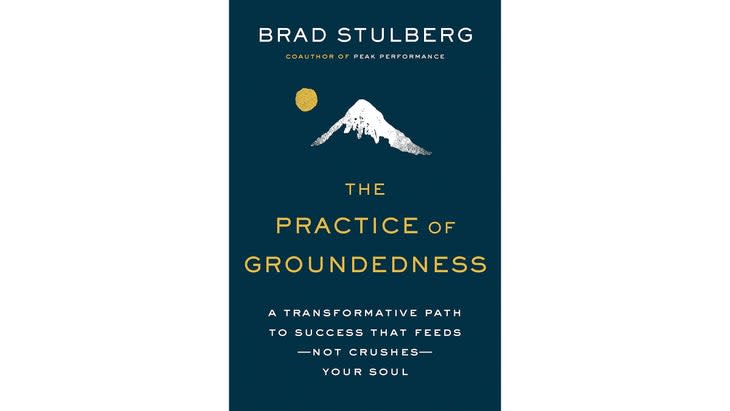
For Stulberg, Outside's Do It Better columnist, this is his first solo foray after two well-received books co-written with track coach Steve Magness. Like the previous two books, the big question explored here is how to live a successful, meaningful, and happy life in the modern world--but the emphasis has shifted away from the first goal and towards the latter two, as it has for many of us over the past two years. Stulberg's three pillars, he writes, are "scientific research, ancient wisdom, and modern practice." What he adds to them is a gift for clarity and synthesis, along with an affinity for simple practical actions rather than nifty-sounding but unproven biohacks.
'The Biggest Bluff,' by Maria Konnikova
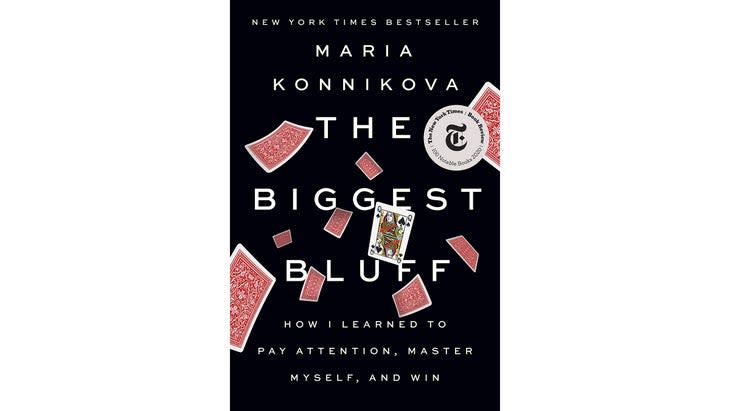
Konnikova wanted to write a book about the balance between skill and luck in life--so she decided to learn to play poker, where those two elements mingle in a particularly pure combination. She already had a Ph.D. in psychology; her advisor was Walter Mischel, of the famous Marshmallow Test. I'm not giving away anything when I reveal that she ended up delaying the book (which came out last year) and taking a leave from her job at The New Yorker in order to spend time playing (and winning) on the pro poker tour. That journey, in itself, is a ton of fun to read about, but Konnikova's insights about skill and luck make it much more than that.
'A Runner's Journey,' by Bruce Kidd
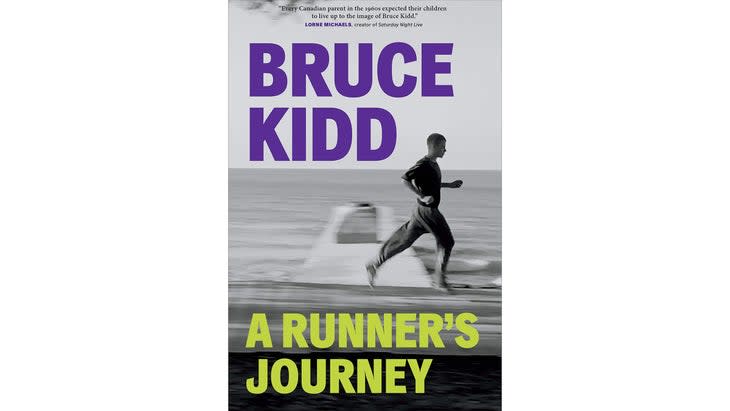
A few years ago, a strange movie short from the early 1960s made the rounds on the Internet. It featured an abstract jazz soundtrack, poetic narration by W.H. Auden, and artistic footage of a young runner named Bruce Kidd. Kidd is such a giant figure in Canada that it's hard to capture in a few words who he is and what his new memoir is about. He was the original teen phenom: his Canadian junior 5,000-meter record of 13:43 stood for more than half a century, and he recounts a story of an indoor meet in San Francisco where two up-and-coming high schoolers just a few years younger than him, Jim Ryun and Gerry Lindgren, ask to meet him so they can get his advice. After his running career, he became a prominent sports academic, historian, and activist, with strong opinions on everything from amateurism to apartheid that often didn't sit well with the establishment. One of his more recent causes: he was a scientific advisor to Dutee Chand, the Indian sprinter who won the right to compete without lowering her unusually high testosterone levels. I don't end up agreeing with all of Kidd's positions, but the book's epic trajectory--he seems at times like the Forrest Gump of sports policy, popping up in every controversy of the past 50 years--offers important context to today's debates. Oh, and the striking footage from that movie? Apparently the filmmaker tied him to the bumper of a station wagon, asked him to run two laps--and then kept driving, zooming in on his face to capture the tension of a runner at his limits.
'Galileo's Middle Finger,' by Alice Dreger
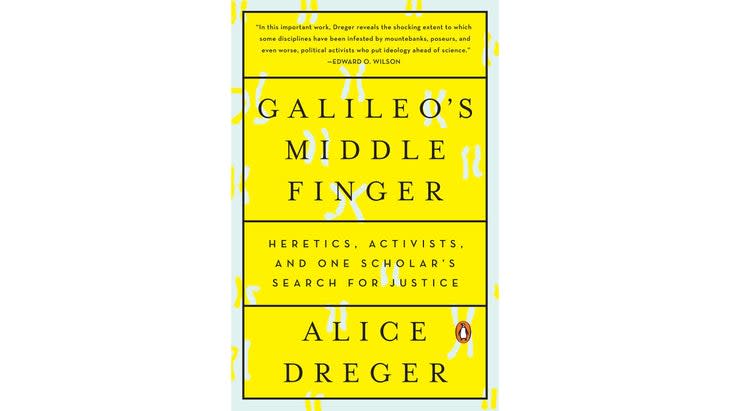
As both a complement and counterpoint to Bruce Kidd's book, you could do worse than this 2015 tale of academic controversies and the sometimes uneasy relationship between science and activism. The book starts with Dreger's advocacy for intersex rights and subsequent controversies around transgender issues, but it ends up grappling more generally with the ways that scientific evidence gets distorted or ignored in service of social or political agendas. It's not about sports, but for anyone trying to understand the current debates about testosterone rules, it offers helpful context. Oh, and it's also a very entertaining read.
'Suggestible You," by Erik Vance
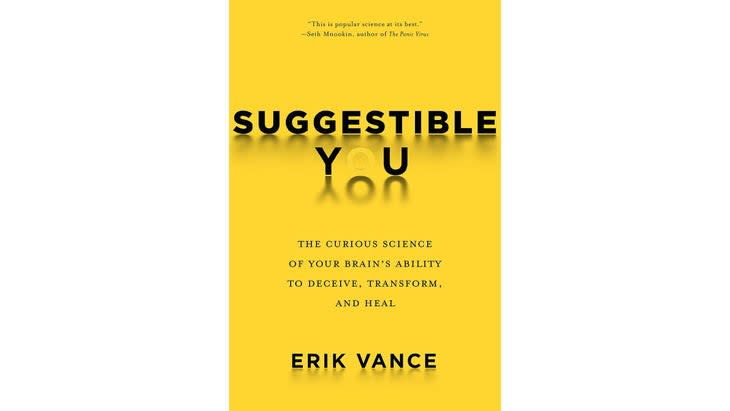
I'm a little late to this 2016 book, which based on the subtitle I originally figured was mostly about the placebo effect. In fact, it's a much broader look at the delicate dance between expectation and suggestion that underlies not just the placebo effect (and its evil twin, the nocebo effect), but also phenomena like hypnotism and false memories. I found the hypnotism section particularly fascinating, not because it provided all the answers about this phenomenon but because there's clearly so much that remains unknown. For anyone who enjoyed the research I discussed in my book Endure about the brain's role in determining our physical limits, Vance's book will hit the mark.
'The Genius of Athletes,' by Noel Brick and Scott Douglas
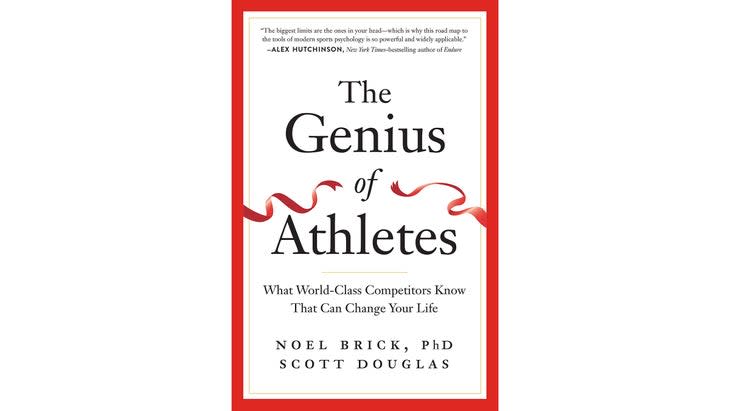
Here's another entry on the "If you've read Endure..." list. Writing that book convinced me that the mind plays a more important role than I'd realized in the pursuit of high performance, but it didn't give me a lot of answers about how to apply that insight in real life. Enter Noel Brick, an ultrarunner and sports psychology researcher whose work I've written about on several occasions (including his now-famous study on the physiological effects of smiling while you run). Brick teamed up with veteran running journalist Scott Douglas to write an accessible guide to the various tools and approaches of sports psychology, and how they can apply to situations both within and outside of sports.
'Chatter,' by Ethan Kross
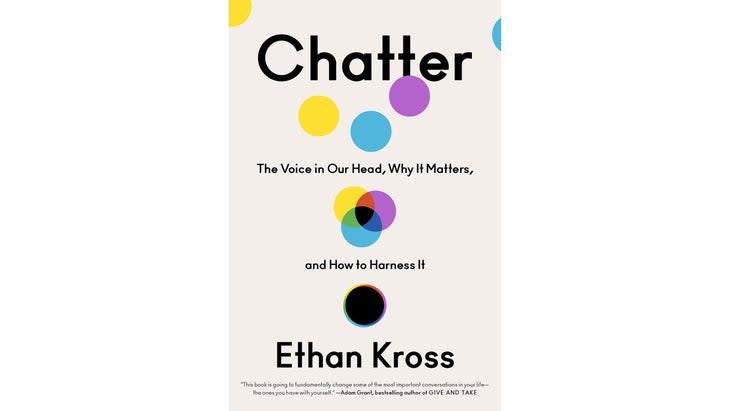
On a related note, University of Michigan psychologist Ethan Kross's new book is the definitive look at self-talk, a topic I've been writing about in the context of endurance sports for years. Kross's treatment is much broader than sports: the subtle nuances of your inner monologue, he and other researchers have shown, can have remarkable effects on how we think, feel, and act. By the time you finish the book, you'll be acutely aware of how constant that inner voice is, and how it can both spur you forward and hold you back.
'Klondikers,' by Tim Falconer
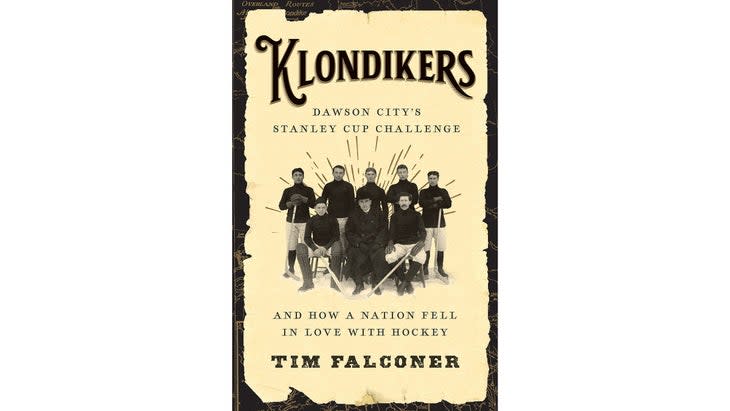
As tales of endurance go, how's this: when the Dawson City hockey team challenged Ottawa for the Stanley Cup in 1905, it took them three and a half weeks to get there. First they had to walk or bike 330 miles to Whitehorse. Then a blizzard shut down the trains to Skagway, and when they finally arrived they'd missed their steamer to Vancouver by two hours. From Vancouver, they still had to take a train across the continent. Falconer's book is the story of that unlikely challenge, but more generally it's an entertaining dive into what sports--and society--looked like a century ago.
'In It for the Long Run,' by Damian Hall
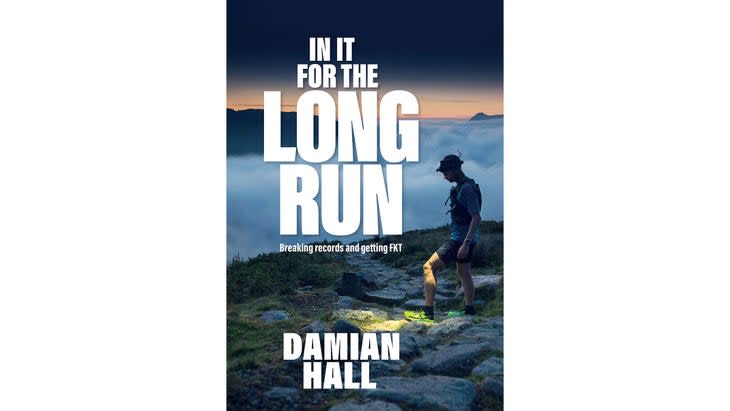
According to the publisher's official description, this is "ultrarunner Damian Hall's story of running a first marathon aged thirty-six, dressed as a toilet, and representing Great Britain four years later." That captures the book's vibe surprisingly well. It's actually structured around his successful assault in 2020 on the record for running the 261-mile Pennine Way, which is a stunning athletic feat even though (let's be honest) you've probably never heard of it. The real reason for reading the book is that Hall is a funny, irreverent, and engaging writer, so you get a great window into the world of ultrarunning, and more specifically the rugged and mud-splattered variant of British ultrarunning that Richard Askwith chronicled in Feet in the Clouds.
'What Strange Paradise,' by Omar El Akkad
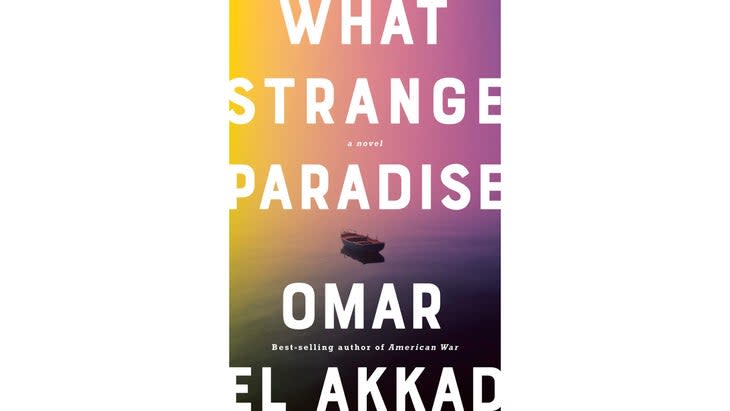
El Akkad's first book, the 2017 novel American War, was one of the most gripping, challenging, and thought-provoking books I've read in years. That one was set in a post-apocalyptic future (though parts of it seem more and more prescient with each passing year). His new novel inhabits the present, following the story of a nine-year-old Syrian boy who washes up on the shores of a Mediterranean island after a boat packed with asylum-seekers sinks. There's no Sweat Science tie-in here; this is just a really, really good (and, once again, challenging) book.
Here's hoping one of these titles catches your fancy, and happy reading!
For more Sweat Science, join me on Twitter and Facebook, sign up for the email newsletter, and check out my book Endure: Mind, Body, and the Curiously Elastic Limits of Human Performance.

